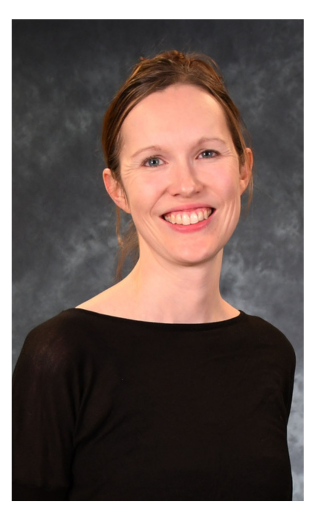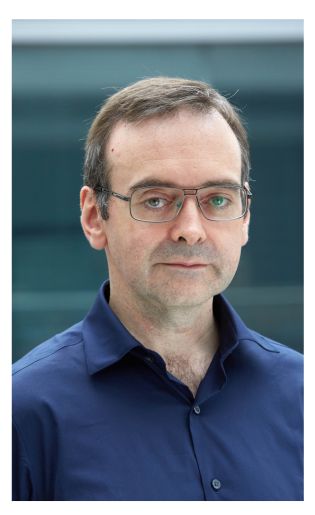Eating disorders are complex and often misunderstood conditions that affect almost 4 million people in the UK.
There is much that clinicians still don’t know about eating disorders and why some people are affected more than others. That’s why research into eating disorders is not just important, it’s vital.
Early treatment for young people with eating disorders
Dr Karina Allen is a Consultant Clinical Psychologist in the NHS and researcher at King’s College London. Early in her career, she was struck by the difference in treatment success rates for eating disorders compared with mental health conditions. 
“Our best available treatments for eating disorders helped about 50% of people get better,” she says.
“We’re not doing well enough – we need to do better.”
Despite progress from research, eating disorder treatments still don’t help everyone.
“Our treatments mainly focus on the psychological side of eating disorders. This is important but we need research to understand the biological and social factors too. This means we can find treatments that work for everyone’s unique situation.”
One research success story is FREED - First Episode Rapid Early Intervention for Eating Disorders. The programme helps young people within the first 3 years of illness.
“We initially trialled FREED with around 60 patients with eating disorders,” says Dr Allen.
“We got people into treatment faster and they recovered better. For anorexia nervosa, 60% reached a healthy weight within a year compared to just 17% before FREED. It’s a great example of how clinical practice and research can come together to help people get better. The model has now been rolled out nationally.
“Between 2020–2023, FREED helped 2,430 16–25 year-olds receive early treatment for their eating disorder. As well as the clinical benefits, early treatment also saved the NHS £10.9 million.”
After the COVID-19 pandemic, there was a rise in eating disorder cases. For many people, getting access to treatment can be difficult. This makes research more urgent.
"During the pandemic, some people felt lonely and their daily routines changed. We think this, along with the stress of missing school, may have made it easier for some young people to develop an eating disorder," explains Dr Allen.
"There’s also still a stigma about who eating disorders affect. Some people think they’re not sick enough to deserve help. Or, because of someone’s age, body shape, ethnicity or gender, they’re not recognised by health professionals as having an eating disorder. That’s why research that includes a wide range of voices is so important.”
Uncovering the genetic roots of eating disorders
Another major step forward in eating disorder research is EDGI UK, the Eating Disorders Genetics Initiative. EDGI is building one of the largest datasets in the world to explore why some people develop eating disorders. It's also designed to help researchers explore genetic and environmental links.
Gerome Breen, Professor of Psychiatric Genetics at King’s College London, leads the initiative. .jpg?language_id=1)
“EDGI is about bringing together data about people with different types of eating disorders so we can study their biology," he explains.
"We’re also looking at social and environmental risk factors, so this isn’t just about genetics.”
To take part in EDGI, people simply sign up online, complete a questionnaire, and return a saliva sample by post. While participants don’t receive individual results, they become part of a growing research community.
“What participants are doing is helping each other,” says Professor Breen.
“By joining, you’ll be enabling discoveries that could lead to new treatments for everyone with eating disorders. So far, nearly 7,000 people have joined EDGI and we have an ambitious target to reach 10,000. The study is expanding this year to include young people under 16.”
EDGI is powering a wide range of research studies into different types of eating disorders. This includes binge eating and relapses. Researchers are trialling new treatments and understanding people's experiences.
With NIHR support, EDGI is also using advanced DNA sequencing to explore how genetics shape severe eating disorders. The initiative is already producing intriguing results.
“We’re seeing genetic patterns that suggest metabolism plays a role across anorexia and binge eating disorder,” says Professor Breen.
“This is helping us think about eating disorders as conditions that involve both body and mind."
“Eating disorders are devastating and we deserve to be understood so that we can be treated effectively.”
- EDGI UK participant
How you can get involved with research
Be Part of Research makes it easier than ever to find and take part in suitable health and care research.
Simply sign up online to be contacted about opportunities to take part in studies that match your interests - including eating disorders research.
Join a study into eating disorders
You can also take part in vital health research looking at eating disorders. Use our study search tool to find a study that interests you.
A number of eating disorders studies are currently looking for volunteers, including:
- The Eating Disorders Genetics Initiative (UK wide)
- Ethnic variations in accessing treatment for Eating Disorders (EVATE) (West Midlands)
- Intermittent theta burst stimulation for young people with persistent anorexia nervosa (London)
- SOOTH-ED – evaluating a device to help manage sensory disturbances for people with eating disorders (London)
And if taking part in a study doesn’t feel right at the moment there are other ways to get involved in research.








